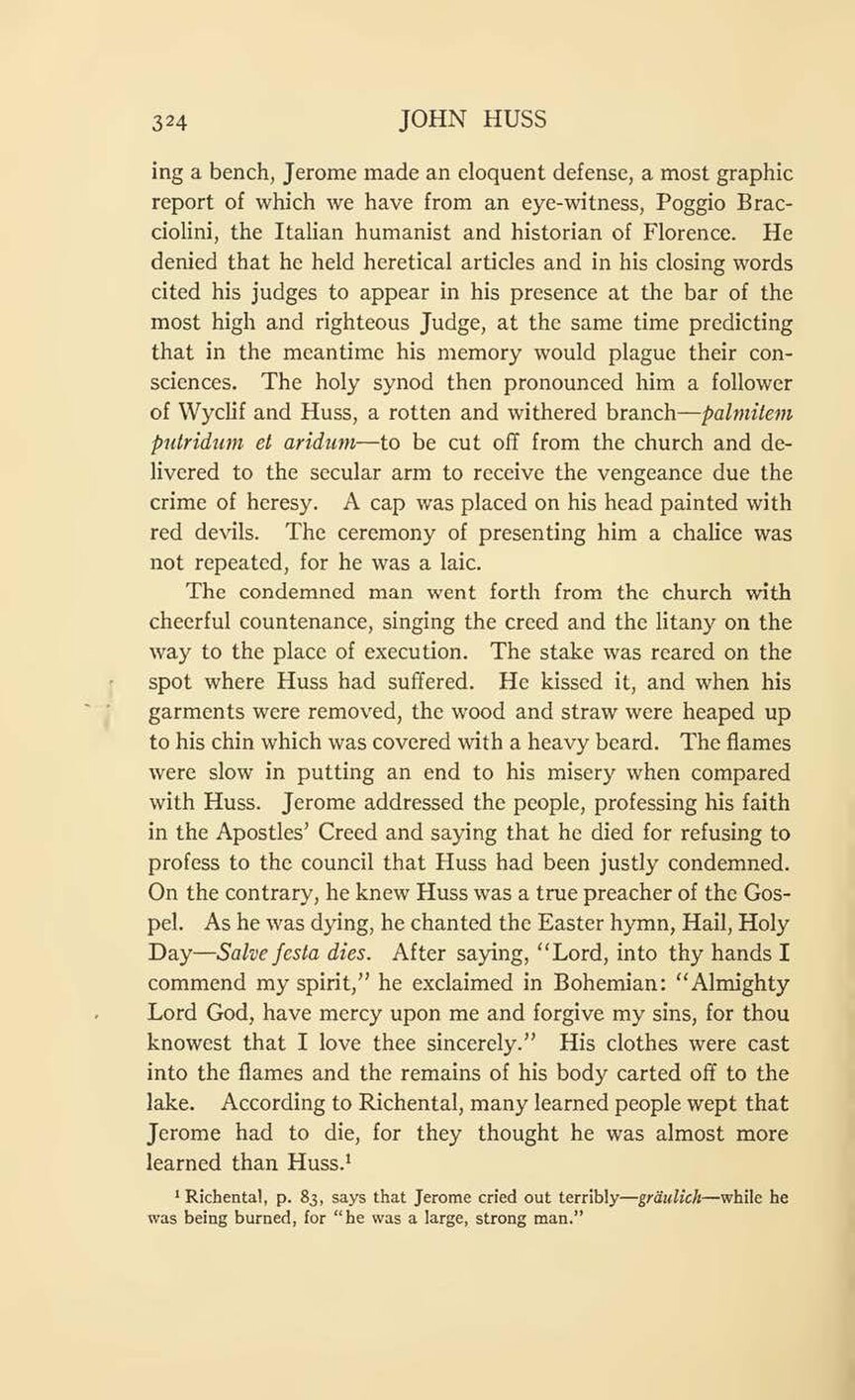ing a bench. Jerome made an eloquent defense, a most graphic report of which we have from an eye-witness. Poggio Bracciolini, the Italian humanist and historian of Florence. He denied that he held heretical articles and in his closing words cited his judges to appear in his presence at the bar of the most high and righteous Judge, at the same time predicting that in the meantime his memory would plague their consciences. The holy synod then pronounced him a follower of Wyclif and Huss, a rotten and withered branch—palmitem putridum et aridum—to be cut off from the church and delivered to the secular arm to receive the vengeance due the crime of heresy. A cap was placed on his head painted with red devils. The ceremony presenting him a chalice was not repeated, for he was a laic.
The condemned man went forth from the church with cheerful countenance, singing the creed and the litany on the way to the place of execution. The stake was reared on the spot where Huss had suffered. He kissed it, and when his garments were removed, the wood and straw were heaped up to his chin which was covered with a heavy beard. The flames were slow in putting an end to his misery when compared with Huss. Jerome addressed the people, professing his faith in the Apostles’ Creed and saying that he died for refusing to profess to the council that Huss had been justly condemned. On the contrary, he knew Huss was a true preacher of the Gospel. As he was dying, he chanted the Easter hymn. Hail. Holy Day—Salve festa dies. After saying, “Lord, into thy hands I commend my spirit,” he exclaimed in Bohemian: “Almighty Lord God, have mercy upon me and forgive my sins, for thou knowest that I love thee sincerely.” His clothes were cast into the flames and the remains of his body carted off to the lake. According to Richental, many learned people wept that Jerome had to die, for they thought he was almost more learned than Huss.[1]
- ↑ Richental, p. 83, says that Jerome cried out terribly—gräulich—while he was being burned, for “he was a large, strong man.”
